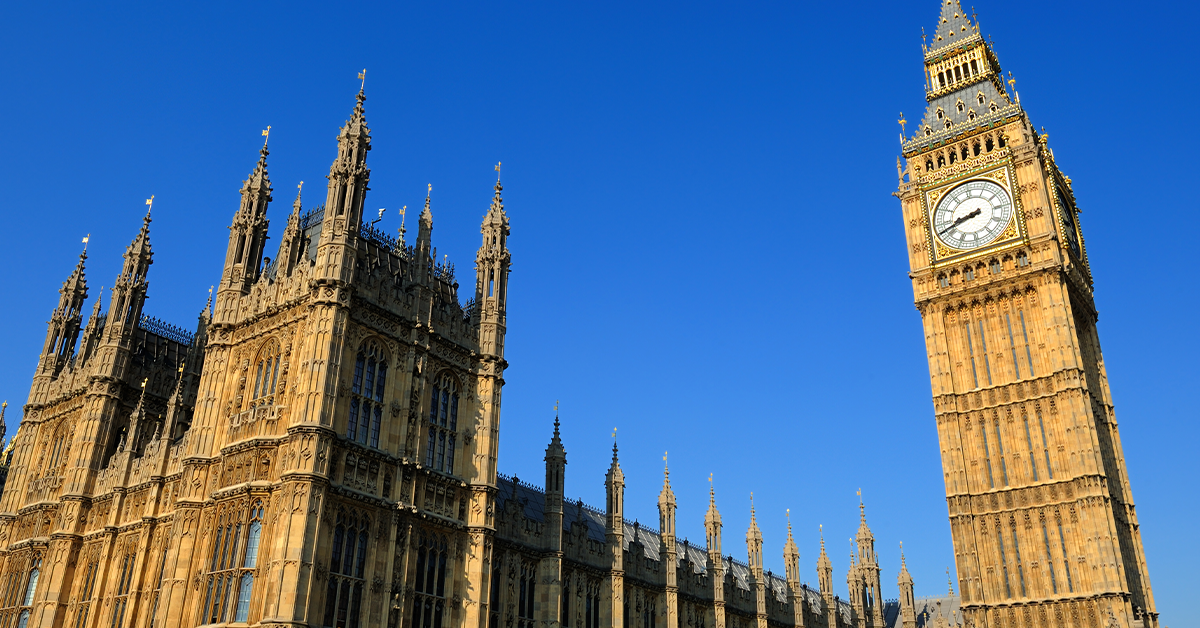Humanists UK has welcomed a number of proposals in the Labour Party’s 2024 manifesto. It has however raised questions and expressed disappointment about missing pledges previously made by Shadow Cabinet members in the media.
Separately, Humanists UK has today written to the Labour Party seeking clarity after a letter was circulated by Sir Keir Starmer to faith groups pledging to roll out more widely an already existing ‘Faith Covenant’ in local government. The Convent has already led to examples of discrimination against both LGBT people and non-religious people in local government.
Humanists UK is lobbying all the parties and candidates to support its campaigns and equality for humanists and the non-religious by adopting policies to advance freedom of thought, choice, and expression. It previously published analyses of the Liberal Democrat, Conservative, and Green manifestos.
Policies in focus
Human rights law

Humanists UK was pleased to see the Manifesto say that under a Labour Government, ‘Britain will unequivocally remain a member of the European Convention on Human Rights’. The spectre of leaving the European Court of Human Rights was raised by the Conservative Party in its own Manifesto earlier in this week. The Lib Dems and Greens also pledged to honour the UK’s human rights treaties.
Humanists UK strongly welcomes this pledge. Humanists UK previously spearheaded the largest-ever human rights coalition dedicated to protecting the Human Rights Act.
Relationships and Sex Education (RSE)

On RSE, the Labour Manifesto says very little explicitly, other than that ‘Labour will ensure schools address misogyny and teach young people about healthy relationships and consent.’
Although very vaguely worded, if taken to mean a commitment to comprehensive, age-appropriate RSE without religious exemptions in faith schools, this is an approach Humanists UK could wholly endorse.
National Curriculum

On schools, Labour’s Manifesto says ‘Labour will launch an expert-led review of curriculum and assessment, working with school staff, parents and employers to change this… Our reforms will build on the hard work of teachers who have brought their subjects alive with knowledge-rich syllabuses, to deliver a curriculum which is rich and broad, inclusive, and innovative.’
Humanists UK strongly welcomes the promise of a full curriculum review, the fact that it is not limited to the National Curriculum, and therefore would include a review of subjects like Religious Education (RE).
In letters sent to prospective parliamentary candidates, Humanists UK has been reminding them that no curriculum review has taken place in England since 2013 and that it is already falling out of date, particularly in relation to RE, where case law mandates that schools should teach about humanism alongside religions, and where non-religious people now outnumber those who subscribe to religions. In Wales, the Welsh Labour Government’s last curriculum review conducted along similar lines made Wales a world leader in inclusive education and Humanists UK is hoping that this commitment in the Manifesto could mean the same for education in England.
Ban on conversion therapy

Humanists UK and LGBT Humanists welcome where the Labour Manifesto reads: ‘So-called conversion therapy is abuse – there is no other word for it – so Labour will finally deliver a full trans-inclusive ban on conversion practices, while protecting the freedom for people to explore their sexual orientation and gender identity.’
Humanists UK and LGBT Humanists have campaigned for a ban on this pseudoscientific religious torture for decades, and helped to drive the political visibility and salience of this issue in recent years. It has urged MPs from all parties to support a comprehensive and enforceable ban.
School admissions

Labour promises in its Manifesto that it ‘will ensure no matter whatever your background, you can thrive, and therefore we will enact the socio-economic duty in the Equality Act 2010.’ Elsewhere it says ‘breaking the pernicious link between background and success will be a defining mission for Labour… Labour will transform our education system so that young people get the opportunities they deserve.’ Elsewhere it promises ‘We will make sure admissions decisions account for the needs of communities and require all schools to co-operate with their local authority on school admissions, SEND inclusion, and place planning.’
This is encouraging. Humanists UK will be writing to remind the Shadow Education Secretary of recent reports by the Sutton Trust and the Education Policy Institute of the negative impact of faith-based admissions on social mobility and in compounding hardships faced by poorer families. It supports the introduction of a socio-economic duty in the Equality Act and will be firm in consultations that this duty must be placed on local authorities when considering the approval of new schools and their admissions policies, including faith schools.
The commitment to reform admissions decisions and planning is especially welcome given recent reports on how children with special educational needs and disabilities (SEND) among the groups most discriminated against by faith admissions. Another example was the recent prospect of the last nonreligious school in Southwark being turned into a faith school, without regard to the community’s needs.
In light of the ongoing Department for Education consultation on the matter, Humanists UK will also be urging Labour not to lift the so-called 50% cap on discriminatory faith-based admissions.
Bishops in the House of Lords

On the subject of Lords reform, the Labour Manifesto says:
‘The next Labour government will therefore bring about an immediate modernisation, by introducing legislation to remove the right of hereditary peers to sit and vote in the House of Lords. Labour will also introduce a mandatory retirement age. At the end of the Parliament in which a member reaches 80 years of age, they will be required to retire from the House of Lords…
‘Whilst this action to modernise the House of Lords will be an improvement, Labour is committed to replacing the House of Lords with an alternative second chamber that is more representative of the regions and nations. Labour will consult on proposals, seeking the input of the British public on how politics can best serve them.
Humanists UK welcomes the opportunity to consult on reforming the upper chamber significantly. This ought to mean removing the presence of 26 appointed Church of England bishops from the upper house, who operate as a party, vote on laws, and enjoy special speaking privileges over other members. The only other sovereign state with a similar arrangement is Iran. Removing the bishops would fulfil a longstanding Humanists UK policy.
Government partnerships with religious groups

On the Government’s working relationship with faith groups, the Labour Manifesto says ‘Government is at its best when working in partnership with business, trade unions, civil society, faith groups, and communities.’
Humanists UK is pleased that mention of faith groups is contextualised alongside promises to work similarly with business, trade unions, and civil society. Humanists UK has 120,000 members and supporters and a UK-wide volunteer force of over 1,000 pastoral carers, dialogue representatives, and local community activists, and would seek to work with a government of any colour in pursuit of common goals. Sir Keir Starmer previously spoke admiringly of humanist community activists in his address to Humanists UK’s 125th anniversary. In that light, where the Manifesto says ‘faith groups’, Humanists UK hopes this is shorthand for ‘religion or belief’ groups, which is the term in the Equality Act and which extends to humanists as well.
In context however, Humanists UK is very worried by Labour’s pledges this week outside the Manifesto to work more closely with faith groups, specifically where it promises to ‘promote local faith covenants to facilitate partnerships with Local Authorities and faith groups’, particularly where this is likely to exacerbate the discriminatory impact of Equality Act and Human Rights Act exemptions for faith groups carrying out local government services. The Covenant allows faith groups providing such services to proselytise against service users and to discriminate against both employees and users on the basis of religion. Examples Humanists UK has seen include anti-gay discrimination in services contracted by local authorities, of a homophobic religious charity providing a government contract to lesbian women who had been sex trafficked, and a staff member bullied out of her job at a Christian service provider for being non-religious. Humanists UK has already written to the Labour Party on this matter.
Absent pledges
After briefs to the media from Bridget Phillipson, David Lammy, Keir Starmer and others on subjects like tackling illegal schools, incorporating the UN Convention on the Rights of the Child, and creating parliamentary time for a vote on assisted dying, we hoped to see and to welcome these pledges but they do not appear in the Manifesto.
Humanists UK will be writing to Labour to seek reassurances they are still Labour’s intentions and will feature in its programme for government if elected, as polls currently forecast.
Other party manifestos
Humanists UK previously reported on relevant policies contained in the Lib Dem, Conservative, and Green Party manifestos.
Notes
For further comment or information, media should contact Humanists UK Director of Public Affairs and Policy Richy Thompson at press@humanists.uk or phone 0203 675 0959.
Humanists UK is the national charity working on behalf of non-religious people. Powered by over 120,000 members and supporters, we advance free thinking and promote humanism to create a tolerant society where rational thinking and kindness prevail. We provide ceremonies, pastoral care, education, and support services benefitting over a million people every year and our campaigns advance humanist thinking on ethical issues, human rights, and equal treatment for all.
